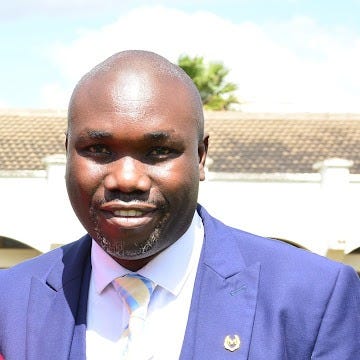Lack of Menstrual Hygiene Access Impacts Girls' Education in Malawi
Florence Mateyu [not her real name], a 13-year-old girl from Mgona Township, continues to face challenges during her menstruation due to the poverty prevalent in her community, writes Meclina Chirwa.
Lilongwe, Malawi - Florence Mateyu [not her real name], a 13-year-old girl from Mgona Township, continues to face challenges during her menstruation due to the poverty prevalent in her community, writes Meclina Chirwa.
Using old clothes instead of sanitary pads, Florence experiences discomfort and low self-esteem, hindering her educational aspirations of becoming a lawyer.
Florence's struggle is representative of many girls in both urban and rural areas.
The World Health Organisation advocates for every woman and adolescent girl to have access to clean menstrual hygiene materials and the ability to change them as needed.
However, in Mgona, where poverty and cultural beliefs prevail, many girls lack proper menstrual hygiene kits.
To avoid being stigmatized by schoolmates, Florence spends up to a week at home during her menstruation.
"Girls in my community are forbidden from discussing menstruation in public. When I had my first period, I was terrified and isolated myself for seven days," she shares.
Menstrual hygiene management remains a significant concern for adolescent girls and young women in developing countries like Malawi, where a knowledge gap persists.
High costs of sanitary products lead girls like Florence to resort to homemade materials that often fail to prevent leakages.
Traditional beliefs label menstruating girls as unclean or "sick," forcing them to refrain from attending school or performing daily tasks.
Florence explains, "During my period, I am prohibited from preparing food or playing with my peers. I am told that if anyone, including nearby boys, sees or touches my sanitary towels, I will become barren."
Florence calls for open discussions and increased awareness of menstrual hygiene issues while urging the government to subsidise and make sanitary pads more affordable and accessible.
Edgar Phiri, coordinator of urban water, sanitation, and hygiene programmes at WaterAid Malawi, emphasises the importance of investment in menstrual hygiene management to improve girls' education.
Asayire Kapira, a menstrual hygiene advocate, emphasises the need for increased education to overcome menstrual barriers and taboos.
This year's Menstrual Hygiene Management Day serves as an opportunity for authorities to raise awareness and ensure the affordability and accessibility of sanitary materials.
In Malawi, handmade reusable pads are more commonly used by women and adolescent girls in rural communities than disposable pads.
With approximately half of Malawi's population living below the poverty line, affordability remains a major obstacle, as a pack of sanitary pads costs around K1000.
Engaging traditional leaders has proven vital in addressing cultural barriers to menstrual hygiene, as highlighted by Holystone Mawumsamatha Kafanikhale, Chief Environmental Officer.
The government aims to advocate for menstrual hygiene management, ensuring access to products and facilities in schools.
Efforts to provide girls with comprehensive knowledge about menstrual hygiene products are imperative.
By addressing these issues, Malawi can break down barriers and promote educational attainment among girls.



